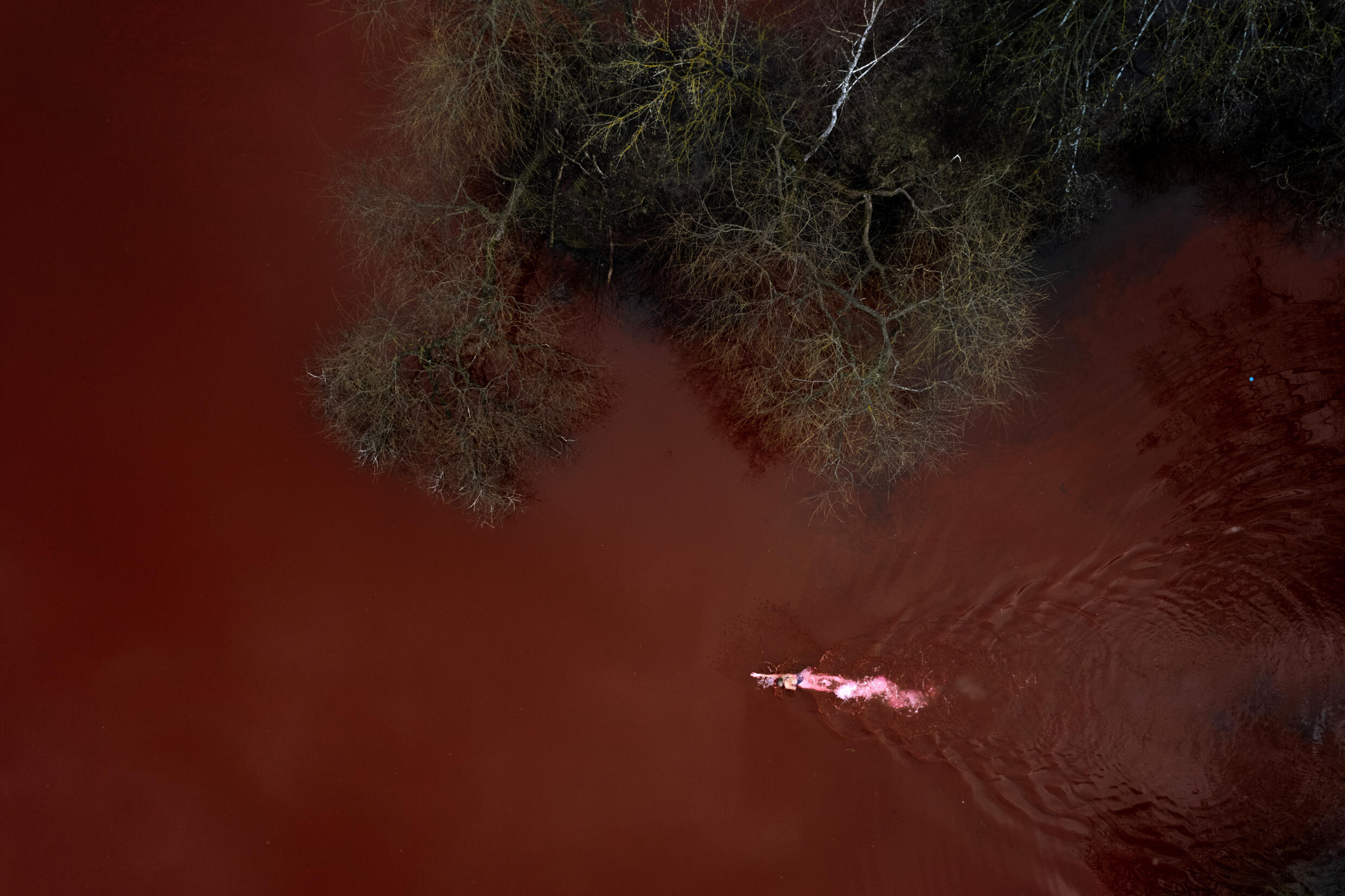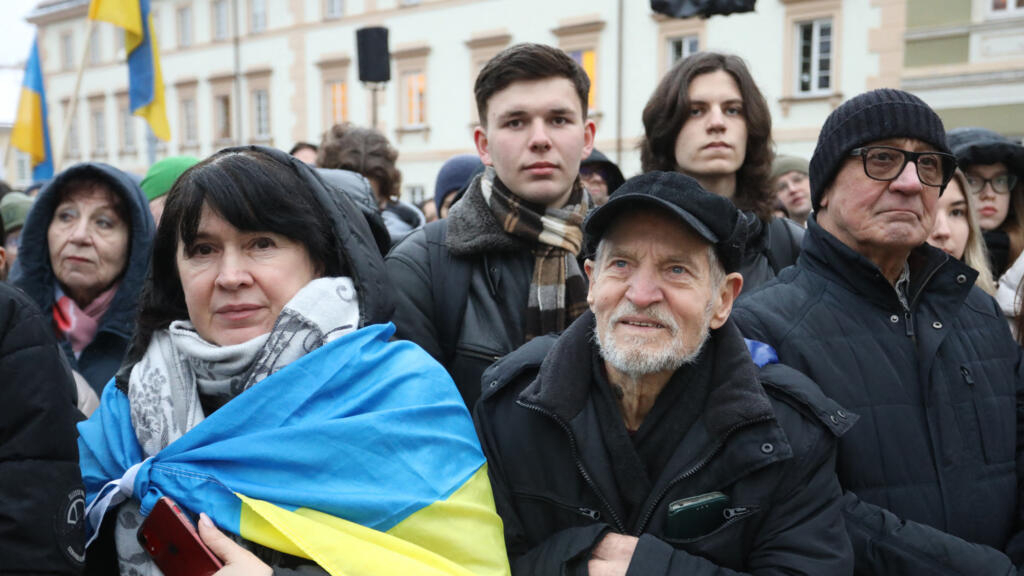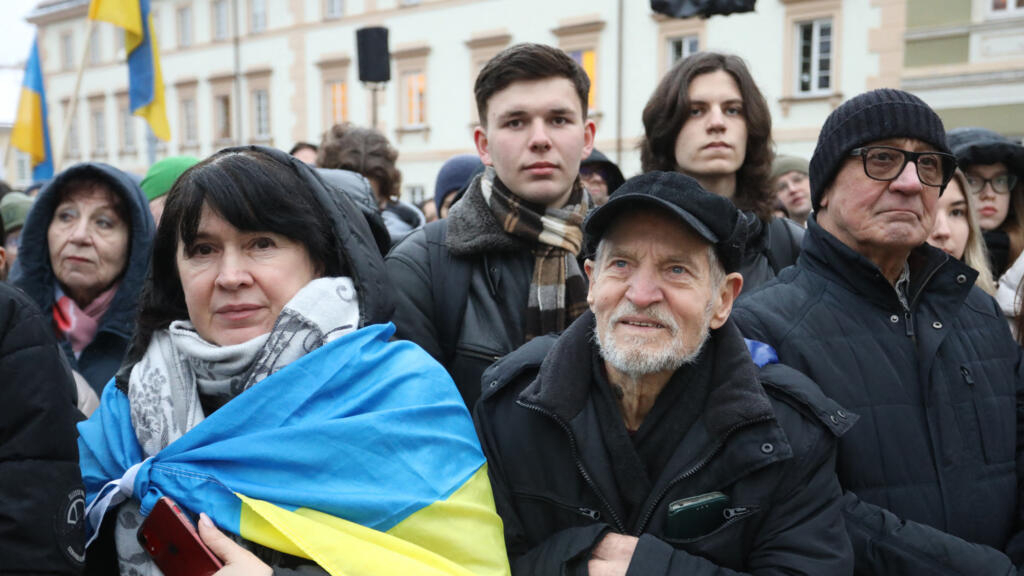Lithuania’s Minister of Culture Simonas Kairys spoke to FRANCE 24 about Lithuania’s fight against Russian disinformation and why the Baltic nation feels so bound to Ukraine.
Issued on:
5 min
Advertising
In March 1990, Lithuania became the first nation to declare its independence as the Soviet Union collapsed, setting an example for other states that had been under the Kremlin’s influence for half a century. As a nascent democracy emerging from Soviet control, Lithuania was free to rediscover its own history and culture.
But Vilnius has once again become a target for Moscow. Russian President Vladimir Putin has long considered the demise of the Soviet Union as a historical tragedy in which Russians were innocent victims. As part of efforts to justify the February 2022 invasion of Ukraine, Russia has launched a disinformation campaign aimed at Kyiv’s allies in the West.
In addition to putting pressure on Ukraine’s supporters, the Kremlin has attempted to intimidate them. Russian authorities placed Lithuanian Culture Minister Simonas Kairys, Estonian Prime Minister Kaja Kallas and others on a wanted list in February along with other Baltic officials for allowing municipalities to dismantle WWII-era monuments to Soviet soldiers, moves seen by Moscow as “an insult to history”.
Upon being informed his name was listed, Culture Minister Kairys was insouciant. “I’m glad that my work in dismantling the ruins of Sovietisation has not gone unnoticed,” he said.
Read moreThe Kremlin puts Baltic leaders on ‘wanted’ list
FRANCE 24 spoke to Kairys on why it is vital to fight Russian propaganda, and why the Baltic state feels so invested in what is happening in Ukraine.
This interview has been lightly edited for length and clarity.
What historical narratives has Russia tried to distort when it comes to Lithuanian independence?
Simonas Kairys: Russia is still in “imperialism” mode. The way they inscribed me onto their wanted list shows that they think and act upon the belief that countries that were formerly part of the Soviet Union – sovereign and independent countries such as Lithuania – are still part of Russia.
Russia has its own law system, which – from their point of view – is [the law even] in free countries (in the Russian criminal code, “destroying monuments to Soviet soldiers” is an act punishable by a five-year prison term). It’s absurd and unbelievable how they interpret the current situation in the world. If they say, for example, that they are “protecting” objects of Soviet heritage in a foreign country like Lithuania, they are spreading their belief that it is not a free country. But we are not slaves, and we are taking this opportunity to be outspoken and say Russia is promoting a fake version of history.
Why is combating Russian disinformation essential for Lithuanian national security?
It is not important for Lithuania – it is important for the EU, for Europe and for the entire free world. The war in Ukraine is happening very near to the EU; it is happening only a few hours away from France. Culture, heritage [and] historical memory are also fields of combat. Adding me to their wanted list is just one example of this. When we see how Russia is falsifying not only history but all information, it’s important to speak about it very loudly. Lithuania has achieved a lot in this domain, along with Ukraine and France.
When France had the [rotating, six-month] presidency of the EU [in early 2022], we made several joint declarations. The result was that we signed a sixth package of sanctions against Russia and we designated six Russian television channels to be blocked in the EU – this was the first step in considering information as a [weapon]. In other words, information is being used by Russia to convince their society and sway public opinion in other European countries. Now we have a situation in which we are blocking Russian television channels in EU territory.
Our foreign partners often ask us upon which criteria Russian information can be considered as disinformation. These days, it’s very important to stress that any information – from television shows to news to other television productions – coming from Russia is automatically disinformation, propaganda and fake news. We must understand that there is no truth in what Russia tries to say.
This fight against disinformation is crucial because we are in a phase of big developments in technology and artificial intelligence. We have to ensure that our societies will be prepared, be capable of critical thinking, and understand what is happening in the world right now.

To borrow a term from Czech writer Milan Kundera, would you say that Lithuania was “kidnapped from the West” when it was annexed by the Soviet Union in 1940?
During the Middle Ages, the Grand Duchy of Lithuania spanned from the Baltic Sea to the Black Sea. We were the same country as Poland, Ukraine and Belarus. We were oriented to the West and not the East. In much older times, during the Kievan Rus period, Moscow didn’t even exist; there were just swamps and nothing more. But with [growing] imperialism from the Russian side, they began portraying history in a different way. Yet our memory is like our DNA, our freedom and orientation are ingrained. The eastern flank of the EU is currently talking about the values of Western civilisation much more emphatically than in the past.
[During the Cold War] not only was our freedom taken but [Russia] tried to delete history and paint a picture only from the time when this imperialism entered our territory. But we remembered what happened in the Middle Ages; we remember how modern Lithuanian statehood arose after World War I and how we regained our freedom in 1990. It’s impossible to delete this memory and name Lithuania as a country that isn’t free. Once you take a breath of freedom, you never forget it. This is the reason why we understand Ukrainians and why we are so active to not only defend the territory of Ukraine, but also the values of Western civilisation as well.
How has the war in Ukraine influenced Lithuanian life and culture?
The main thing is to think about freedom; we have to do a lot because of that freedom, we have to fight for freedom … we understand more and more that culture plays a big role in this war, because it is based on culture and history. You can see what Putin is declaring and it is truly evident that culture, heritage and historical memory are used as the basis for an explanation of why Russia is waging war in Ukraine right now. (To justify the invasion of Ukraine, Putin has insisted that Russians and Ukrainians are one people and uniting them is a historical inevitability.)
There are important collaborations taking place with Ukrainian culture and artists. It’s important to give them a platform – for everyone to see that Ukraine is not defeated, that Ukraine is still fighting, that Ukraine will win, that we will help them.
The best response to an aggressor is to live your daily life, with all your traditions, habits and cultural legacy. This fight is also for your way of life. The situation is not one where you must stop and only think about guns and systems of defence – you have to live, work, create, and keep up your business and cultural life.
Source: france24.com




